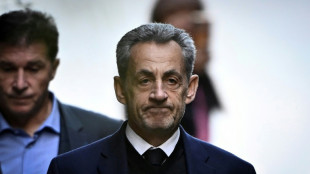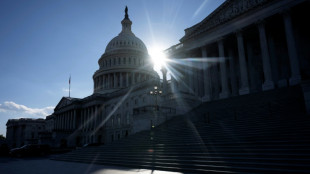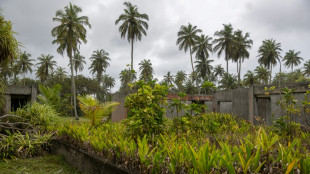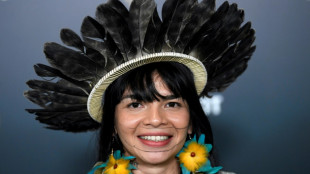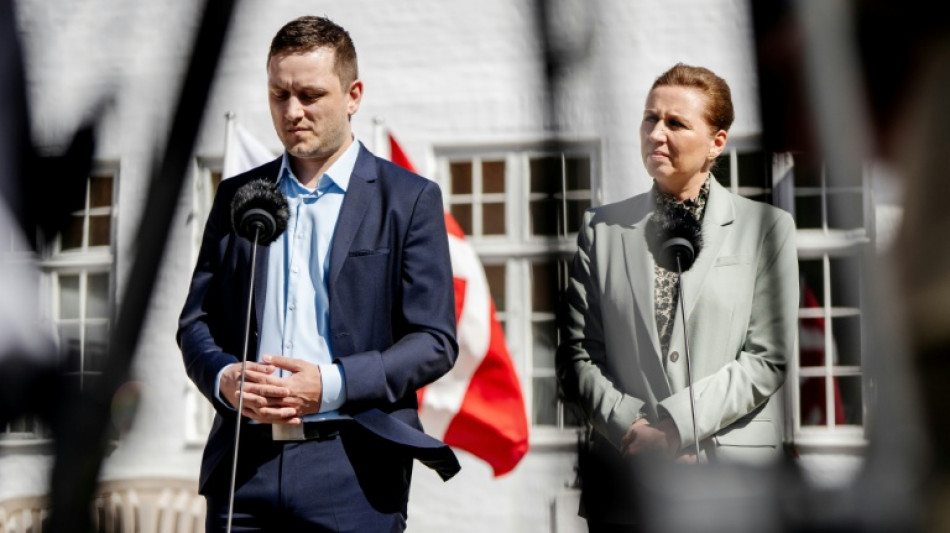

Denmark apologises for Greenland forced contraception
Denmark's prime minister on Wednesday presented a long-awaited apology to the victims of Denmark's forced contraception campaign in Greenland, lifting a key point of tension with its autonomous territory.
From the 1960s until 1992, Danish authorities forced around 4,500 Inuit women, around half of those of child-bearing age, to wear a contraceptive coil -- or intrauterine device (IUD) -- without their consent.
The aim was to reduce the Inuit birth rate.
Many of the women were left sterile and almost all of them have suffered from physical or psychological problems.
Around 150 of them have sued the Danish state for violating their rights and demanded compensation.
"We cannot change what has happened. But we can take responsibility. Therefore, on behalf of Denmark, I would like to say: I am sorry," Prime Minister Mette Frederiksen said, in a statement.
The victims, who have sought an official apology for several years, welcomed her remarks.
"My clients are happy, it's a big step," Mads Pramming, the lawyer representing the 150 women.
"Now it remains to be seen if the state will recognise its legal responsibility and offer compensation. Until that is done, I won't be opening the champagne," he said.
One of the victims, Henriette Berthelsen, told AFP she was pleased.
"I'm happy but it has perhaps come belatedly," she said, adding: "It generates a lot of thoughts."
She was 13 years old when she had a coil inserted for the first time, without her or her family's consent.
The scandal came to light when one of the victims spoke out in the media several years ago about the trauma she experienced.
A podcast series by Danish public broadcaster DR in 2022 then revealed the full extent of the campaign.
- 'Like a rape' -
Naja Lyberth was the first woman to come forward and publicly describe what happened to her.
She was around 13 or 14 when she and the other girls in her class were sent to the doctor's office.
"His tool penetrated me to insert the coil. It was very cold and felt like a knife stabbing my insides. It was very violent," she recalled.
"I could clearly see that the tools looked much too big for my little girl's body, but at the time I didn't realise they were for adult women."
"It was like torture, like a rape," she said.
The scandal is one of several sensitive dossiers tainting Denmark's ties to its autonomous territory, including forced adoptions and the forced removal of Greenlandic Inuit children from their families.
"We know that there are also other dark chapters that deal with systematic discrimination against Greenlanders. Just because they were Greenlanders," Frederiksen said.
"My apology on behalf of Denmark is also an apology for these other failures for which Denmark is responsible, where Greenlanders have been systematically treated differently and worse than other citizens of the kingdom."
Greenland was a Danish colony until 1953, and did not gain home rule until 1979.
The practice of forced contraceptions continued on a smaller scale after 1992, when Greenland took over responsibility for its health system.
Greenland's Prime Minister Jens-Frederik Nielsen also apologised in the same statement for the cases that happened under Greenland's control.
"I apologise to those of you who have been exposed to -- and lived with the consequences of -- interventions you did not ask for nor had control over," he said.
The apologies came the same day that Danish public television DR reported that US officials close to President Donald Trump have been observed in Greenland trying to gather information on sensitive topics which could be used to present Denmark in a bad light.
Trump has repeatedly said he wants to take over Greenland for security reasons, and has refused to rule out the use of force to secure the strategically located, resource-rich island.
Denmark's foreign ministry has summoned the US charge d'affaires for talks over what it said was "interference" in its affairs.
P.Peña--ECdLR



